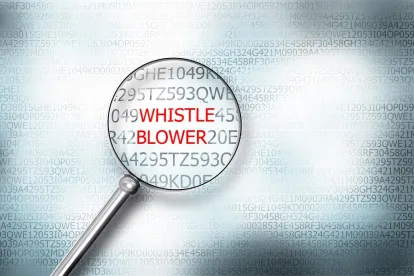On April 21, the U.S. Securities and Exchange Commission (SEC) issued a $580,000 award to a whistleblower who voluntarily provided the agency with original information that contributed to the success of an enforcement action. According to the SEC, the whistleblower’s information and assistance “were significant in that they helped the staff to more efficiently and quickly conduct the investigation.”
Through the SEC Whistleblower Program, qualified whistleblowers, individuals who voluntarily provide the SEC original information that leads to a successful enforcement action, are entitled to a monetary award of 10-30% of funds recovered by the government. The SEC weighs a number of factors when determining the exact percentage to award a whistleblower. These include positive factors like degree of further assistance provided by the whistleblower and the amount of law enforcement interest in the case, as well as negative factors like culpability and unreasonable delay in reporting.
In this case, the SEC negatively assessed the whistleblower’s culpability in the underlying misconduct and their delay in reporting the violations to the SEC. According to the award order, “[the whistleblower] was involved in a transaction that gave rise to the… violations described in the Covered Action, [the whistleblower] financially benefited from that transaction, and [the whistleblower] delayed in reporting for over two years after that transaction, while investors continued to be harmed.”
In the 2021 fiscal year, the SEC issued a record $564 million in whistleblower awards to a record 108 individuals. Overall, the SEC has awarded over $1.2 billion to over 250 whistleblowers since issuing its first award in 2012. In addition to monetary awards, the SEC Whistleblower Program offers confidentiality protections to whistleblowers. Thus, the SEC does not disclose any identifying information about award recipients.
Individuals considering blowing the whistle to the SEC should first consult an experienced SEC whistleblower attorney to ensure they are fully protected and qualify for the largest award possible.
Geoff Schweller also contributed to this article.




 />i
/>i

